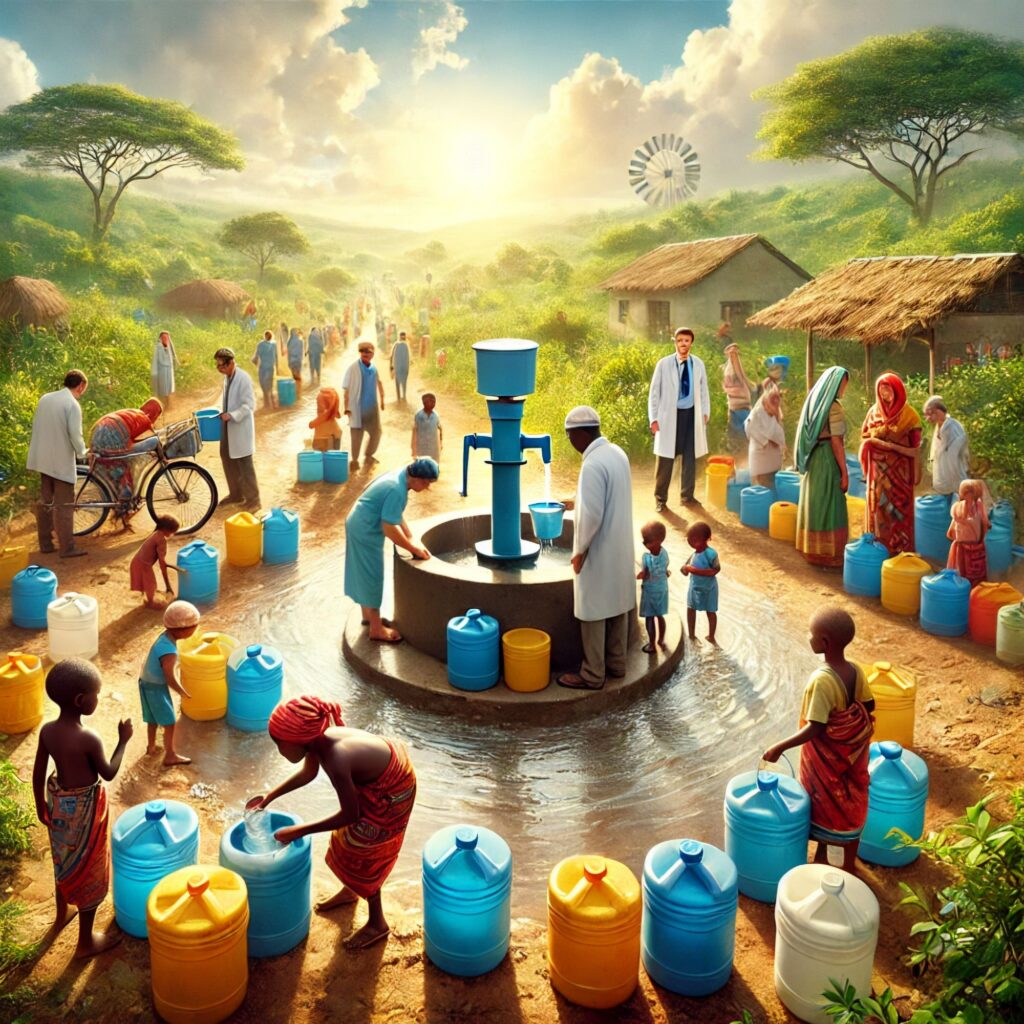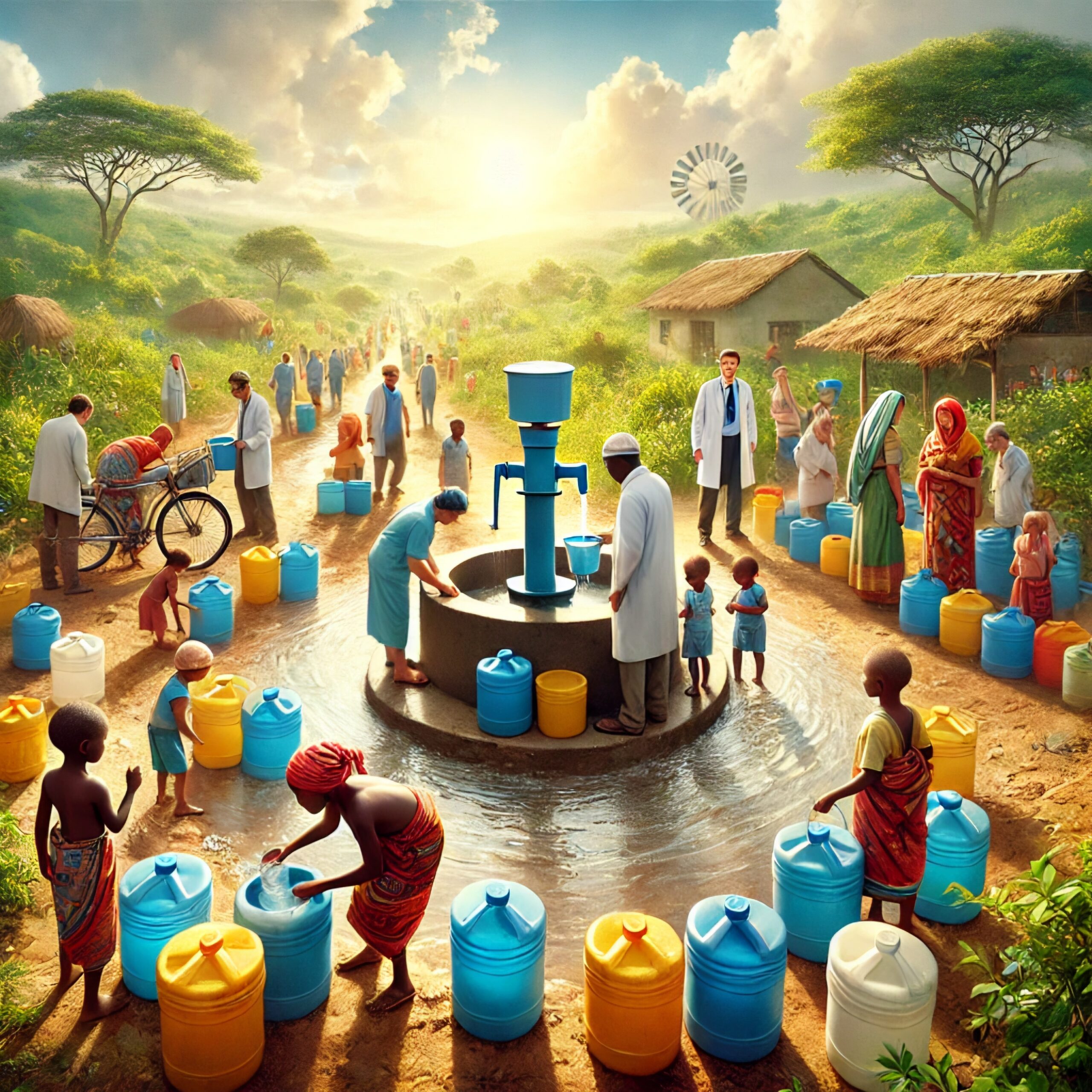Global Challenges with Water: How Global Organizations Address Water Crises and Improve Health
Global challenges with water are among the most critical issues affecting public health worldwide. The lack of clean and safe drinking water impacts billions of people, particularly in developing countries. Global organizations such as the World Health Organization (WHO), UNICEF, and WaterAid are at the forefront of tackling water crises by implementing innovative solutions and strategies. These initiatives aim to provide clean water access, improve sanitation, and promote better hygiene practices.
This article delves into the ongoing efforts to address water challenges, the impact on global health, and the role of international organizations in creating sustainable solutions.
The Importance of Clean Water for Global Health
Access to clean water is fundamental for life and health. Contaminated water can cause diseases such as diarrhea, cholera, and typhoid, leading to millions of preventable deaths annually. According to the World Health Organization, unsafe water is responsible for over 485,000 deaths each year, with children being the most affected.
Learn more about how hydration and water intake influence health on our Nutrition page.

How Global Organizations Address Water Crises
1. UNICEF: Ensuring Water for Every Child
UNICEF works to ensure that children and families in vulnerable regions have access to safe drinking water. Their strategies include:
Installing water supply systems: Boreholes, wells, and piped water systems.
Providing emergency water supplies: During natural disasters or conflicts.
Promoting hygiene education: Teaching communities about handwashing and sanitation.
Reference: UNICEF’s Water and Sanitation Programs
2. WaterAid: Long-Term Solutions for Water Access
WaterAid focuses on long-term, sustainable water solutions in developing countries. Their approach includes:
Building sustainable infrastructure: Community-managed water systems.
Empowering women: Supporting them as key agents in managing water resources.
Advocating for policy changes: Encouraging governments to prioritize water access.
Reference: WaterAid Official Site
3. World Health Organization: Setting Water Safety Standards
The WHO sets global standards for water quality and safety, ensuring consistent guidelines for countries to follow.
Monitoring water quality: Providing tools to test and improve water sources.
Promoting safe sanitation practices: Linking water safety with hygiene education.
Reference: WHO Water, Sanitation, and Hygiene
Global Challenges with Water: Key Issues
1. Resource Scarcity
Many developing countries face natural water scarcity, worsened by climate change. Regions in Africa and the Middle East are particularly vulnerable.
2. Infrastructure Deficiencies
Inadequate infrastructure means water often does not reach those who need it most. Leaking pipes, inefficient systems, and lack of investment worsen the problem.
3. Water Pollution
Industrial waste, agricultural runoff, and inadequate waste management contaminate existing water supplies, making them unsafe for consumption.
Innovative Solutions for Global Water Challenges
1. Solar-Powered Water Systems
Solar-powered pumps provide sustainable access to clean water in off-grid regions, reducing reliance on traditional energy sources.
2. Desalination Technologies
Converting seawater into drinkable water offers a promising solution for water-scarce regions. However, affordability remains a challenge.
3. Community-Led Water Management
Empowering communities to manage their own water resources ensures long-term sustainability and reduces reliance on external aid.
Impact of Water Access on Public Health
Access to clean water significantly improves public health outcomes by:
Reducing waterborne diseases and child mortality rates.
Improving sanitation and hygiene, lowering disease transmission.
Enhancing nutrition by supporting better food preparation and hydration.
Explore more about the role of water in health and wellness on our Wellness Eats page.
Challenges in Scaling Water Solutions
Despite advancements, scaling water solutions globally faces challenges such as:
Funding gaps: Many projects lack sufficient financial support.
Policy barriers: Bureaucratic hurdles slow down implementation.
Environmental impacts: Climate change continues to exacerbate water scarcity issues.
Collaboration between governments, NGOs, and private sectors is essential to overcome these obstacles.
Conclusion
Global challenges with water are a pressing issue that demands immediate action. By addressing water scarcity, improving infrastructure, and ensuring quality standards, global organizations like WHO, UNICEF, and WaterAid are making significant progress. However, sustained collaboration, innovation, and investment are necessary to achieve universal access to clean water.
Learn more about the connection between water, nutrition, and overall health on our Nutrition, Fruits and Vegetables, and Wellness Eats pages.
